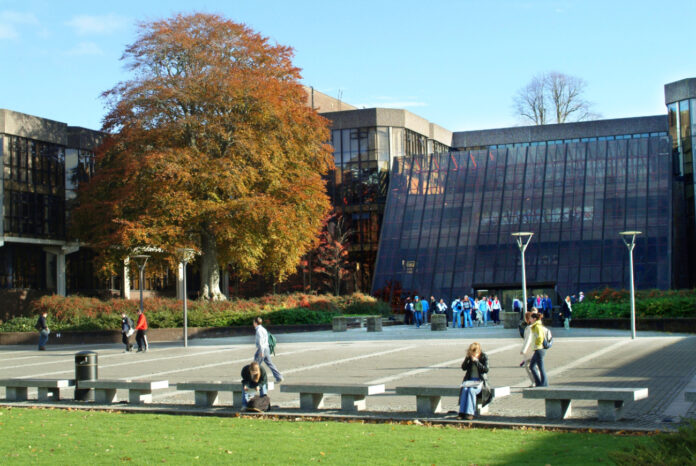
THE UNIVERSITY of Limerick (UL) is expected to post a €700,000 deficit in its annual budget because of a controversial overspend on 20 houses in Rhebogue, currently being used as student accommodation.
This comes as it was confirmed that UL will not attend a scheduled Public Accounts Committee Meeting (PAC) this week, where it was to face questioning over its controversial purchases, to allow university president Professor Kerstin Mey to return from sick leave.
The university expected to have a €7.5million surplus in its 2023 accounts, but the €5million overspend on the Rhebogue properties has meant that UL will now post a significant loss in its annual accounts.
In an email sent to the UL staff on Friday, provost and acting university president Professor Shane Kilcommins confirmed the large cash deficit and said that it is “essential that we also think long and hard about how decisions are made” within the institution.
UL president Professor Kerstin Mey admitted last month that the university had paid significantly above market value for the Rhebogue student accommodation, handing over €11.4million while later independent valuations valued the development at just €6.2million.
This came as the university was already in hot water over its spending relating to the former Dunnes Stores site on Sarsfield Street in Limerick City, another property the university has admitted to paying over the odds for.
In the wake of the Rhebogue purchase, the Higher Education Authority (HEA) invoked special powers to order UL to carry out an investigation into its spending and governance procedures, which is expected to be completed within two months.
In a statement to the Limerick Post, a spokesperson for UL said: “The Higher Education Authority has requested that University of Limerick’s Governing Authority undertake a review of specific issues in relation to the acquisition of the Rhebogue properties and in relation to general governance and culture of the university.”
“Terms of reference for this review are expected to be finalised shortly and, as such, UL cannot comment further on these matters at this time.”
However, this investigation is understood to have cast doubt on UL’s hopes to be the location of a new school for veterinary medicine.
The HEA is understood to have paused all of UL’s capital spending while the investigation is ongoing, impacting UL’s hopes to pitch for the new vet school – a project for which it has sought €60million in government funding.
It is understood that up to €100million worth of capital projects at UL are now also in doubt.
Representatives from UL were set to appear before a meeting of the Dáil’s Public Accounts Committee (PAC) this Thursday (April 11) to discuss the overspend and governance procedures at the institution in relation to the Dunnes Stores and Rhebogue sites, however this date has now been pushed back to allow UL President Professor Kerstin Mey to attend the sitting.
Professor Mey was unavailable to attend this week’s scheduled sitting as she has been on sick leave since the end of last month.
As reported in the Irish Examiner, a letter from UL chancellor Prof Brigid Laffan to PAC members had asked for UL’s appearance before the committee to be pushed back until at least May 6 so that the UL president can appear before them.
Professor Laffan’s letter stated that while Professor Mey is unable to attend this week, she has “indicated her intention to fulfil the engagement before the committee at a later date”.
The UL spokesperson would not be drawn on whether they had sought to delay their PAC hearing, saying that the university were “engaging with the PAC”.
Prof Laffan’s letter sought to assure PAC members “of the university’s intention to be utterly candid with the members of the committee. I am very conscious of the concerns of the committee about the recent acquisition in Rhebogue, as are the university’s stakeholders,” adding that “the Higher Education Authority is also concerned”.










